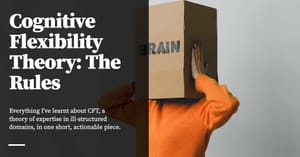If you have lived for any amount of time in Singapore, you would find it impossible to ignore the shadows cast by the founding father of the city state, the late Mr Lee Kuan Yew.
You have to know how to look for them, of course. Look to the systems, not the buildings: Singapore’s institutions were built with his values, the technocracy that governs the country was his doing, Singapore’s bookstores carry his ideas, and even in the gardens of the city you see his mark, in the form of leafy bushes and large shady trees (handpicked and delegated to research for potential cultivation within Singapore, it was said, whenever the Prime Minister chanced upon some promising plant) today grown along boulevards by the scentless Singapore river. LKY was a great man by international standards, a legend by regional ones; I was excited to learn as much as I could about the country.
When I started following the man seriously, in university, one of the things that most perplexed me about him was the repeated pattern of LKY saying some form of “You are young, you have seen nothing, what do you know of this topic that you speak of?” He would deploy this phrase in his great old age, against intellectual interlocutors or ideological opponents or even students, which I watched him do (not live; I hadn’t thought to apply for tickets) at the Kent Ridge Ministerial Forum in 2009.
LKY was in his 80s then, and I didn’t really understand why a man known for his intellectual power had to resort to such dismissive ad-hominem attacks. Much later, I learnt that K. Shanmugam, the formidable Singaporean Law Minister, had experienced something similar in his early career:
I first met him in 1987 when he interviewed me to see whether I was suitable to be a candidate. He cross-examined me for 45 minutes. I was young, and as young are likely to be, I was not very scared of him. I told him I disagreed with his policies, and I said why I disagreed. He was very fatherly, he said he understood my position, though he disagreed. And then he said “Young man, one day you will grow up, and then you will have experience, and then you will understand.”
Of course, I assumed that LKY was using ad-hominem against his interlocutors. At the time, I believed that good argument must always be met with better argument; that the strength and rightness of ideas could be determined by evaluating the merits of arguments alone. Ad hominem attacks seemed like a cheap shot, but they were consistent with what I knew of the man. Did LKY use rhetorical tactics designed to browbeat his less formidable opponents? Of course he did — he was a litigator in his youth, and then a politician; it would be surprising if he didn’t. But, much later, I realised that this wasn’t the only explanation for what I had seen.
New to Commoncog?
Commoncog is a publication about accelerating business expertise.
- Read the free business expertise series.
- Check out our guides.
- Listen to the podcast.
And join thousands of operators and investors reading our newsletter:
LKY wasn’t just using ad-hominem in his attacks. Sometimes he was responding in a manner that took on the forms of ad-hominem, but really what he was doing was applying a different bar for truth. He was arguing on the basis of expertise, experience, and credibility; he was being pragmatic.

The Four ‘Classical’ Theories of Truth
My experience with LKY was a first brush with Singaporean pragmatism. More importantly, it was a first brush with the idea that there are different standards for truth, and that arguments that sound reasonable given one standard might sound terrible when evaluated against a different one. This is very useful to know, because if you are able to swap out different lenses for truth, it becomes easier to be a better, more rigorous thinker.
If we want to understand the bar for truth that LKY was using, and if we want to use it for ourselves, we need to first understand the four ‘classical’ theories of truth, and the implications of each theory on the way we evaluate ideas. To do this, we have to turn to epistemology.
Epistemology is the part of philosophy concerned with the forms of truth. It asks: “how do we know that something is true?” and “what bar for truth should we use to evaluate claims?” In epistemology, there are four ‘classical’ or ‘common’* theories of truth. Of course, a field with a name like ‘epistemology’ sounds high-falutin’ and impractical, but in reality we reach for these theories in our day-to-day lives, in order to determine what is true and what is fake; we do this even if we don’t know their names.
Why are these four theories useful? They are useful because they give us a cheatsheet for critical thinking. Evaluating a claim — any claim — demands that you use some sort of standard of truth in your head; it helps a great deal if you know there are really only four approaches that are worth talking about. The four theories are as follows:
- The correspondence theory of truth — that whatever corresponds to observable reality is true.
- The coherence theory of truth — that claims are true if they follow logically and coherently from a set of axioms (or intermediate propositions).
- The consensus theory of truth — that what is true is what everyone agrees to be true.
- The pragmatic theory of truth — that what is true is what is useful to you, or beneficial for you.
(*I say ‘classical’ because I was taught these four in university; actual philosophers would say that the consensus theory of truth is postmodern, not classical. They have a point — perhaps ‘common’ is a better term. Nevertheless, I think ‘truth by consensus’ is something we use on a day-to-day basis, and so deserves inclusion if you want a discussion about truth to be useful. And if you want to go down that rabbit hole and cross the border from the practical to the philosophical, you may do so here and here).
So far, these theories of truth might seem trite to you. It might not be clear how to make them actionable. So let’s take a closer look.
The Correspondence Theory of Truth
The correspondence theory of truth says that what is true is what matches observable reality. The most obvious application of this theory is in science: whenever we conduct an experiment to verify (or disprove) a hypothesis, we are using the correspondence theory, for we assume that what we observe in the experiment is what is true.
But correspondence isn't just something that exists in science, far away from daily life; we draw on this theory, for instance, whenever we evaluate a claim by checking against our experiences. If a friend claims that “all men are terrible at housework”, for example, you would immediately evaluate that claim against all the men you’ve met in your life. Similarly, if you read in a blog post that ‘action produces information’, you would compare the examples in that post against your past, and then evaluate it according to how convincingly those claims line up with your lived experiences.
The correspondence theory is one way to suss out bad thinkers. In Beware What Sounds Insightful, I argued that much online writing today is produced to grab your attention; if you want to read for career reasons, you must be prepared to defend yourself against the many tricks that writers will use against you to appear more insightful than they really are.
One way to do this is to generate counter-examples while reading — if an author makes a point, synthesised from her experiences, then you should attempt to generate as many counter-examples as possible from your experiences, or from real-world scenarios that you've read about. The more counter-examples you are able to generate, the less highly you should think of the author’s thinking, and the less credible you should find the entire piece.
Don’t Miss: 📚 Commoncog’s Top Book Summaries
- Accelerated Expertise — the best book we have on expertise acceleration methods, commissioned by the military.
- Working Backwards — for the first time, a detailed explanation of how Amazon is able to do what they do.
- Range — a mediocre book arguing for generalists over specialists: why you should read this summary, skip the book, and subscribe to the author’s newsletter instead.
The Coherence Theory of Truth
The coherence theory of truth is the idea that arguments must make sense — that is, arguments must flow logically from premises and intermediate propositions. This is where the notion of ‘fallacy’ comes from — if you make a fallacious argument, you are violating the rules of logic, and therefore your argument may be rejected as false.
I think coherence is what many thinkers fall back on, after correspondence. Whenever you see a commenter pointing out ‘oh, that’s a fallacious argument’, they are drawing on the coherence theory in order to reject an argument or claim out of hand. Both correspondence (“This does not line up with my experiences!”) and coherence (“This is not a watertight argument!”) are the two most common standards for truth I’ve seen used in the wild.
The coherence theory of truth has its place — when you are writing, for instance, it is table stakes to have your arguments flow logically from premises to conclusions. But master debaters and good writers alike are able to bend this to their advantage. I’ve found that really smart people are able to make arguments that are consistently compelling and highly plausible; whether or not they turn out to be true in practice is another thing entirely. This experience should be familiar to you if you've ever dealt with management consultants (who are typically the smartest people in the room): not a single flaw may be found in their reports or presentations, but whether their analysis holds true in application usually remains to be seen.
Lee Kuan Yew was violating the rules of logic by questioning the credibility of his intellectual opponents. Going by the coherence theory of truth, he would have been committing an ‘ad-hominem fallacy’. But he wasn’t going by coherence. He was going by something else.
The Consensus Theory of Truth
The consensus theory of truth says that what is true is what everyone agrees to be true. This sounds bizarrely idiotic on the face of it — like some childish standard of truth, constructed for simpler ideas in simpler times. And yet many aspects of human knowledge depend on consensus to work.
For instance, when I say that I wear a mask to prevent the spread of COVID-19 — how do I know this? Have I observed it in reality (correspondence)? Did someone make a compelling and plausible argument to me (coherence)? The answer is no to both (although there have been many compelling arguments for and against mask-wearing in the months since the pandemic began). Instead, what has happened is that scientists seem to have come to some consensus that mask-wearing is a good idea — even ahead of proper randomised controlled trials — and I believe in the consensus of experts, so therefore I wear a mask.
Consensus plays an important part in the scientific method. We often aren’t able to verify for ourselves the correctness of some scientific study, or the nuances of a scientific result. So instead we trust in the system of science itself — the consensus of scientists, shaped by the incentive systems of research — to come to a tentative conclusion on what is true and known about the world.
The Pragmatic Theory of Truth
The pragmatic theory of truth is — to me — the most interesting theory of truth. It is also the most counter-intuitive, so I’ll spend more time on it.
The pragmatic theory of truth is the view that whatever is useful to you, or beneficial for you, is true. This approach stems from the tendency of early pragmatic philosophers to evaluate ideas for ends, not means; pragmatism is most concerned with ‘practical consequences’, not theoretical ones. It is the practitioner’s epistemology.
As a trivial example, if you find that believing in a religion helps you become a better, more effective person, then it is perfectly acceptable — from the pragmatist’s perspective — to take up religion and believe in it as truth. In other words: ‘if it works for you, why not?’
Pragmatism is counter-intuitive in other, subtle ways. For instance, the question “is it true?” can often be substituted with “does it work?” or “is it useful with regard to my goals?” This is a very different bar for truth compared to the previous three theories. Often, the pragmatic theory of truth is concerned with instrumental results; it is less interested in the specifics of why something works.
This idea might seem strange to you. It certainly seemed bizarre to me, when I first learnt about it. But it is not so surprising to the average Singaporean, because pragmatism lies at the core of the country’s identity. Fortunately, like the other theories of truth, many of us use pragmatism without knowing it — for instance, when we are learning to cook, we don’t necessarily have to study the minutiae of food science in order to grok how to use a particular ingredient in some recipe. We use it, taste it — and if it works, we accept it, and then we move on.
A sharp observer would say that if we dug deeper to understand the chemical interactions at play with that ingredient, we would be able to come up with better, more innovative recipes. And while this may be true, it doesn’t detract from the broader idea: that asking ‘is this useful?’ is a different bar for truth than ‘is this true?’ and that both standards for truth have their place in the world. If, for instance, we only used things that we fully understood, we would never use paracetamol (aka acetaminophen) for treating fever, because paracetamol’s mechanism of action remains unknown.
When applied to the development of an entire country, however, the pragmatic theory of truth can result in some spectacular things. LKY was notorious as a pragmatist; he went with whatever idea proved useful, whatever idea worked, to advance Singapore’s interests, never mind if it came from the political Left or from the political Right. And so Singapore continues to confound foreigners; as Ha-Joon Chang puts it in Economics: The User’s Guide:
(…) if you only read things like The Economist or the Wall Street Journal, you would only hear about Singapore’s free trade policy and its welcoming attitudes towards foreign investment. This may make you conclude that Singapore’s economic success proves that free trade and the free market are the best for economic development — until you also learn that almost all the land in Singapore is owned by the government, 85 per cent of housing is supplied by the government-owned housing agency (the Housing Development Board) and 22 per cent of national output is produced by state-owned enterprises (the international average is around 10 per cent). There is no single type of economic theory – Neoclassical, Marxist, Keynesian, you name it – that can explain the success of this combination of free market and socialism. Examples like this should make you both more sceptical about the power of economic theory and more cautious in drawing policy conclusions from it.
Such an odd mix of policies could only come from repeatedly asking ‘what is useful for our goals?’ and ‘what has worked elsewhere?’, persistently, pragmatically, over five decades of trial and error, as LKY and his colleagues (and eventually their successors) did.
The pragmatic theory also leads to some interesting implications around evaluating arguments. If your standard of truth is “does this work?”, and you know that smart people may come up with sophisticated arguments that sound right but don't work, then an obvious next step is to filter arguments based on the credibility of the person making them.
Long-term readers of this blog would not find this surprising — I’ve long argued that if you need swimming advice, you do not go to a non-swimmer for it, and if a non-swimmer spends an hour telling you how to swim, the correct response isn’t to argue with him; the correct response is to tell him to go learn swimming, and to discount everything he says.
As I wrote in A Personal Epistemology of Practice:
Credibility counts when it comes to practical matters. Just because Ben (a non-swimmer) makes a convincing and rhetorically-compelling argument doesn’t change the fact that he hasn’t tested it against reality. Don’t get me wrong: I’m not saying that Ben is certainly mistaken — he could be right, for all we know. But it’s just as likely that he’s wrong, and if you’re like most practitioners, you don’t have a lot of time to test the assertions that he makes. The common-sense approach is to go with whoever seems more credible, along with the assumption that it still might not work for you; we could say here that you’re applying a probability rating to each piece of advice, where the rating is tied to the believability of the person giving said advice.
And so when LKY was saying “you don’t have the experience, you don’t know anything”, what he was really saying was “you don’t have practical understanding of this topic, I do, and until you do I have very little to say to you” — something that mirrors Ray Dalio’s conception of Believability, except in a more condescending form.
Continue Reading: 💡 Commoncog’s Best Series
- The Business Expertise Series — All the best businesspeople share a common mental model of business. This is what we know of that model, and why it works.
- The Tacit Knowledge Series — How do you extract expertise from the heads of experts?
- Becoming Data Driven in Business — The data literacy course you never had.
- A Framework for Putting Mental Models to Practice — Mental model thinking is typically a fad. Here’s how to actually put Munger’s observations to practice.
Putting The Four Lenses To Use
At this point, it’s important to note that no single one of these theories of truth are better than the rest. All of them are suitable for some types of truth, but not others; all of them have flaws. The purpose of explicating the four theories is simply to show you that we use different standards for truth for different things.
How do we use these ideas, then? Well, whenever you come across an argument in a blog post or article or speech, realise that there are four possible standards for truth to evaluate that argument against. Don’t limit yourself to just one or two.
This analysis can be expressed with the following questions:
- Correspondence — Does this author’s claims match up to my experiences? Can I come up with counter-examples or edge cases where the author’s ideas do not apply?
- Coherence — Has the author committed any logical fallacies? Does the argument flow coherently and logically from premises to conclusion?
- Consensus — Who else agrees with this argument? If this argument is on something scientific, is it arguing against a consensus, and if so do I trust that consensus?
- Pragmatic — Is the author believable? Can I come up with a test to see if the author’s argument works?
I’ve noticed for some time that people don’t naturally reach for a pragmatic evaluation of an argument. For instance, when I wrote my series on tacit knowledge, a commentator on Hacker News responded:
None of their broader arguments are necessarily wrong but when the given counterpoints are so weak it's hard to feel like the rest of the explanation is more than coffee talk.
Setting aside the fact that conversation with HN commenters is sometimes like conversing with a cockatoo, the theories of truth that this commenter was using to evaluate my piece was that of correspondence and coherence — first, he ‘debunked’ my claims by comparing one example in my piece against his lived experience (correspondence), and then he questioned the premises of said bike-riding example, which is a valid attack under the coherence theory of truth. But at no point did he stop to ask: is there a test I can use to evaluate the broader claims in the piece?
One reason I think that pragmatism is the most interesting theory of truth is that it forces you to ask ‘is this useful?’ instead of just ‘is this true?’ The latter question leads you to analyse and speculate; the former question pushes you to test the idea against reality. In other words, pragmatism often forces you to be pragmatic.
And there are also interesting second-order implications. For instance, if you find a practitioner who has a demonstrated track record of success, but then find that what they say about their performance doesn’t seem to make sense, then you should still pay attention anyway. You should pay attention even if what they say doesn’t pass the other bars for truth!
For example, Marissa Mayer is famous for saying that ‘burnout is about resentment’, and that the trick to avoid burning out is to ‘find one thing that you’re giving up that makes you resentful, and then go do that’. Mayer was famous for working long, long hours at early Google without burning out, so I was perfectly inclined to test her theory, even if it didn’t align perfectly with the latest research on burnout.
I quickly discovered two things: first, that Mayer was right about resentment being an early signal for burnout, but, second, that not everyone could use the ‘just one thing’ technique.
What makes this interesting is that Mayer’s argument wasn’t airtight. I could have nitpicked her words, of course. I could also have attacked the examples she gave in the original interview. But the pragmatic approach of developing a test first was a lot more useful than just sitting back and analysing Mayer’s claims using correspondence or coherence.
This approach is more useful because it takes practitioners at their word — and sometimes the tricks that practitioners use to help themselves perform make no sense, but might be useful anyway. (One is reminded of Steven Pressfield’s The War of Art, where he talks about appeasing The Muse in his writing practice. “This is stupid; there is no such thing as a Muse!” you think, “I would do better if I read up on the science of human creativity!” … but it seems simpler to just try it out to see if it works for you).
Wrapping Up
The core idea of this piece is simple: there are four theories of truth that are worth talking about, and once you know this, thinking critically about an argument or a piece of writing becomes somewhat simpler.
The neat thing, though, is that you can invert the questions implied by the four theories of truth for use in your own writing. When writing, ask yourself:
- Do my claims correspond with reality? Can I generate counter-examples for each claim? If so, rethink or rewrite the claim.
- Is my argument coherent? Does everything flow logically from the premises? Am I committing any logical fallacies or doing any excessively large leaps in my reasoning?
- Is there consensus on my position? Should I check what the experts say? (Doing this is often a forcing function for becoming good at reading scientific papers).
- And, finally: is there a pragmatic test for my claim? Can I write up the results of experimentation, so that others may replicate my efforts? And if I am believable, should I write up my accomplishments in this area?
Of the four theories of truth, I find pragmatism the most interesting, if not the most counter-intuitive.
Singapore has been a little unique, in that it has inculcated pragmatism amongst its people for decades now. But I think pragmatism, while it is less popular in online discourse, is found wherever effective people are found. Deng Xiaoping used to say “No matter if it is a white cat or a black cat; as long as it can catch mice, it is a good cat” (不管黑猫白猫,捉到老鼠就是好猫); Charles Koch liked to say “true knowledge leads to effective action.” Both are expressions of pragmatism. And both were effective men.
Get the Action Sheet
Download the actionable summary for The Four Theories of Truth here →
Postscript
To those of you who are interested in Singapore, I don’t mean to say that Singaporean pragmatism is an unalloyed good. I’m sure many Singaporeans are familiar with the flaws of the system. Many more are familiar with the limitations of Singaporean pragmatism.
One of the problems, implied here, is that if you use the pragmatic theory of truth you would naturally evaluate people based on their credibility. From there, it's a short hop to actual ad-hominem.
I suppose I should admit my biases: I found pragmatism a marvellously novel idea as a university student all those years ago; I still find the pragmatic theory of truth underused today. But that by no means implies that Singaporean pragmatism is perfect. I point to Kenneth Paul Tan’s thesis for that.
I find LKY a fascinating leader with a fascinating set of contemporaries (the most interesting of which to me is Goh Keng Swee, who, amongst other things, moved Singapore to a monetary policy based on a managed float of its currency, giving up all control of its domestic interest rate), mostly because so many of them were such excellent systems thinkers. And on this note, I found deputy prime minister Tharman Shanmugaratnam’s comments at the 2015 St Gallen Symposium to be particularly revealing about the Singapore government’s approach to the world:
Stephen Sackur (referring to an on-going online vote by the audience): After 50 years of growth and prosperity, Singapore will face the same structural challenges as the rest of the developed world. 71% of you disagree, presumably you believe, as the Americans will say, "Singaporean exceptionalism", which is an interesting idea, do you believe in Singapore exceptionalism?
Tharman Shanmugaratnam: No, I don't. I don't at all. Very little of what Singapore does is invented in Singapore. Very little.
Our whole — to use the jargon — SOP (Standard Operating Procedures), whether it's in Cabinet or Statutory Board or small public agencies, is “look at the rest of the world”. Try to get some idea, some technique, some method, that has worked well and see how we can do it in Singapore, if possible, better.
Try to avoid the mistakes that have happened. So that's an advantage of smallness, by the way — we never thought that we had it all in our minds. We never think today that we got it all worked out and this is a successful model and that's it. We are never in a golden mean.
(…) I think the thought experiment that’s more useful is “what (bad thing) has happened in a large country, and how could you have avoided it?”
I have little-to-no believability on nation building, or governance, or politics, so you should ignore everything I say on those topics. With that said, I remain fascinated by Singapore. I think it is an example of what systems thinking can do if applied to a nation-state, carefully adapted to its unique history, iterated over by three generations of sharp thinkers, and given a half century of care.
Originally published , last updated .





